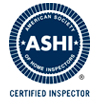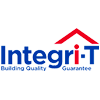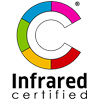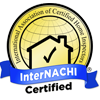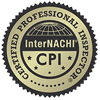FAQ – YG Home Inspection Services
 Before buying a home it is recommended that you have it inspected.
Before buying a home it is recommended that you have it inspected.
Why is this and what aspects of the building would the inspector verify?
What is a pre-purchased home inspection?
It is a thorough visual inspection that essentially covers the entire building to determine its physical condition and the condition of the buildings various components.
How long should a home inspection last?
It depends on the size and condition of the building, but for a small bungalow, the home inspection will take 2-3 hours of work, this includes the time it would take for the home inspector to look at all of the different components, talk to his client and transmit him the information. The building inspector then issues a written inspection report in the following days so that the client has all of the information he needs to make a decision.
What elements does the home inspector need to verify during the home inspection?
There are many, all of the important components of the building, this includes the foundation, facing, balconies, doors, windows, the roof. Inside it means examining every room, the attic space, the crawl space, places that aren’t always accessible to the people who are putting in the offer to buy the home. There are also the mechanical components, inspectors verify the plumbing, the electricity, the heating, the ventilation, always visually, but they may also ask the owners for information if they’re present or ask for a more detailed history such as the Sellers Declaration which can be useful.
Are there areas that the home inspector is not required to inspect?
Because it is a visual home inspection, there is the constraint of what is observable, so everything that is concealed, either behind the ground or under a surface cannot be observed. In other cases it is a question of safety, if a mechanical appliance cannot be properly operated, such as an air conditioner in the middle of winter this is obviously not the best time to do it. These are examples of things that cannot be inspected. Or for example if the roof is covered in snow and the home inspector cannot access it, he should indicated the reason why he cannot inspect it in his inspection report and make recommendations to have it inspected at a later time or take other measures.
What elements should be included in this inspection report?
All the major components must be verified, these must be all indicated in the report. What important for each point or each deficiency noted is, what was observed, what is our analysis of this situation, and very important, what recommendations do we make to our client. So if there is a problem, either a minor or major one, what needs to be done as the next step. Is there a repair that needs to be done? Is a more thorough expertise required? If so, the offer of purchase might need to be reconsidered, and this can be discussed with the client. The home inspector must guide the client, this is very important and its where the inspection report can be helpful.
What problems are seen most often during a pre-purchase home inspection?
The winner in this category would be water infiltrations problems and we mean this in a very broad sense, because water infiltration can lead to problems with mold, condensation or rotting. Sometimes this is noticed during the home inspection, but sometimes it is concealed behind a surface and this can be considered a hidden defect. So an important part of the home inspection, which can be very useful for the client, is to get an overall snapshot of the property to document what condition the property was in when the client acquired it. That way, if for some reason a crack appears one year later or if rotting appears when the client is gutting their property, there will be proof that these elements were in fact hidden and could not reasonably be seen.
Is it recommended that all properties be inspected prior to being purchased, even a new home or a condominium?
Its not mandatory, but it is recommended. If we refer back to our example of getting a snapshot of the property. One of the problems we sometimes see is proving that the problem was in fact concealed. It becomes one persons word against anothers. If you have an professional home inspector, he is an objective third party with no affiliation to the property you’re going to buy. He has no interest in the color of the curtains or in the location of the property, like if it is close to a school. He is concerned with the physical condition of the building. So a written inspection report can be useful in the event that there is a problem or a hidden defect. The other thing is that the person will perform a careful home inspection for 2 to 3 hours. The home inspector probably spends more time in the home than the client did during all of their visits combined. So you have someone on site who can answer your questions, who will take his time to his job and issue a inspection report. And for these simple reasons, for the price that is generally asked for this type of service, it is definitely worthwhile.



